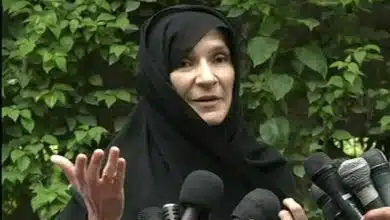
🎉 Date of Birth: January 23, 1965
🎂 Age: 61 years
Introduction — Pakistan’s Tribal-Born Chief Justice Making History
Justice Yahya Afridi is presently serving as the 30th Chief Justice of Pakistan, having assumed office on October 26, 2024. Hailing from a historically underserved tribal background, his appointment under the landmark 26th Constitutional Amendment marked a significant shift in judicial appointments and expectations for judicial reform and independence.
Early Life & Education
- Born: January 23, 1965, in Dera Ismail Khan, from the Afridi tribe of Babari Banda in Kohat.
Education:- Aitchison College, Lahore.
- BA in Political Science & Economics from Government College, Lahore.
- MA in Economics from Punjab University, Lahore.
- LL.M. from Jesus College, University of Cambridge (Commonwealth Scholar).
- Additional legal training in London under a Young Commonwealth Lawyers program.
(library.supremecourt.gov.pk, peshawarhighcourt.gov.pk)
Legal Career & Judicial Ascendancy
- Began as an advocate in the Peshawar High Court (1990), then the Supreme Court (2004).
- Served Khyber Pakhtunkhwa as Assistant Advocate General and later as Federal Counsel.
- Elevated as Additional Judge (2010) and then Permanent Judge of Peshawar High Court (2012).
- Became Chief Justice of Peshawar High Court in December 2016—first from FATA.
- Elevated to the Supreme Court of Pakistan in June 2018.
Appointment as Chief Justice of Pakistan
- Nominated under the new process enabled by the 26th Constitutional Amendment, which allowed a parliamentary committee to recommend the CJP instead of automatic seniority.
- Sworn in on October 26, 2024 by President Zardari, replacing Justice Qazi Faez Isa. His three-year term will run until October 2027.
Vision, Jurisprudence & Public Perception
- Known as a “sober, dignified, and independent-minded judge” with a deep understanding of judicial challenges and strong emphasis on the rule of law.
- Spearheaded reconstitution of the apex court’s Practice & Procedure Committee early in his tenure.
- Advocates judicial focus on accessibility, especially for women and children, and more transparency in governance.
FAQs About Chief Justice Yahya Afridi
Personal Details
- What is Yahya Afridi’s age?
Born on January 23, 1965 — he is 60 in 2025. - Where does Justice Afridi belong?
He hails from Dera Ismail Khan and belongs to the Afridi tribe of Babari Banda, Kohat. - Which colleges and universities did he attend?
Aitchison College, Government College Lahore, Punjab University, and University of Cambridge. - Has he taught law?
Yes—he lectured at Khyber Law College, University of Peshawar. - Does he come from a judicial family?
His family has a tradition of public service but not a judicial legacy per se.
Career & Judiciary
- When did he become a Supreme Court Justice?
June 28, 2018. - When was he appointed CJP?
Took oath on October 26, 2024, as the 30th Chief Justice. - Under which amendment was his appointment made?
The 26th Constitutional Amendment—first time via a parliamentary committee. - How long is his term as Chief Justice?
Three years—ending October 2027. - What was his historic first in PHC?
First Chief Justice from the Federally Administered Tribal Areas.
Trending & News
- Why is he trending?
Historic appointment, reform agenda, and fair judicial stance. - Did PTI challenge his appointment?
Yes—they criticized the change in process and boycotted the committee. - Will he retire in 2027?
Yes, his fixed term ends then. - What notable case did he participate in?
He was on the bench for the Reserved Seats case in 2024. - Does he allow media inside court?
No known public statements; he is generally reserved and avoids social media.
Fun & Trivia
- Is Justice Afridi sporty?
Yes—he captained Cambridge’s polo team! - What traits do legal commentators attribute to him?
Independence, depth, and balanced judgment. - Has he held administrative roles in courts?
Yes—inspection judge roles and committee memberships in PHC. - Does he publish academic work?
Presented papers on forest law, cybercrime, human rights, etc. - What is his judicial philosophy?
Fairness, courtroom dignity, and modernization with respect for tradition.



